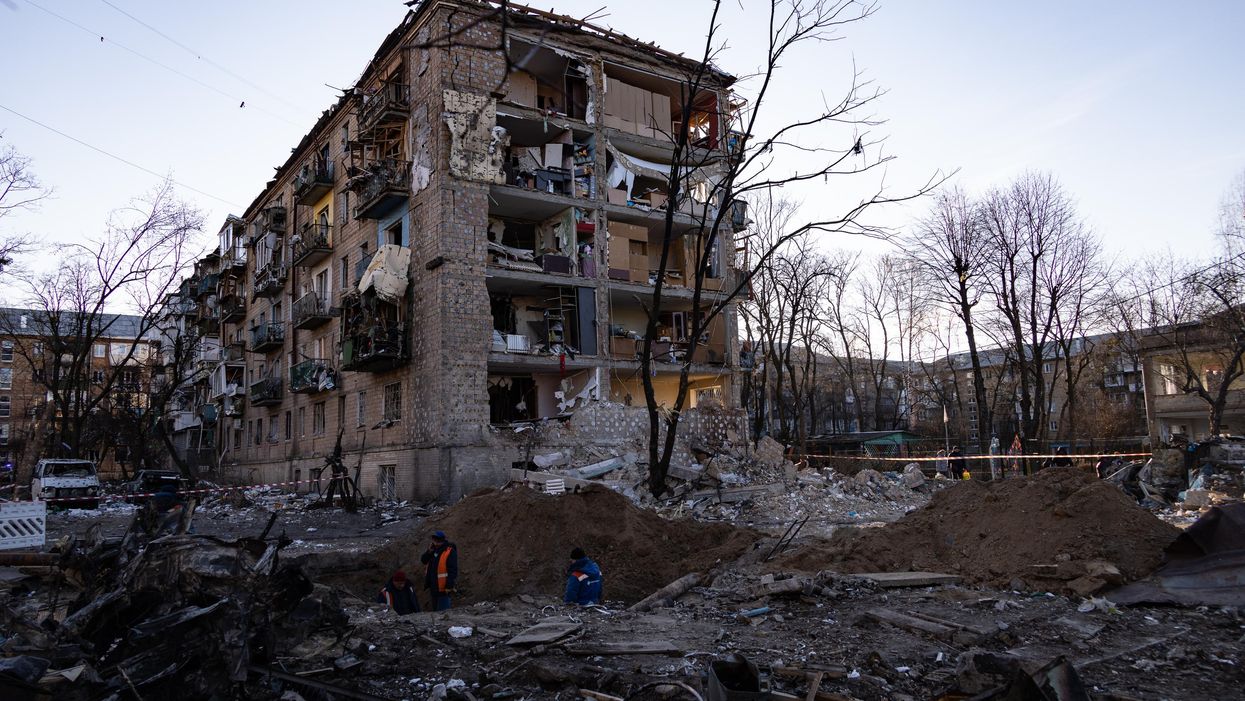Simon is a technology consultant and a contributing author of “Leveraging: A Political, Economic and Societal Framework”.
The crisis in Ukraine should lead Americans to reflect on the political state in our country. The plight of the Ukrainian people, in and of itself, is a weighty issue. At the same time, the harsh reality of events in Ukraine could lead us toward strengthening the foundations of democracy at home.
The Russian invasion of Ukraine illustrates the fragility of democracy in general and, in particular, our democracy in the United States – notably, the importance of the democratic process, free and fair elections, the peaceful transition of power, and the rule of law.
The situation in Ukraine could, and should, be used as a springboard to build the case for securing voting rights in the United States. So far, Democrats in Congress have been unsuccessful in moving either the John Lewis Voting Rights Advancement Act or the Freedom to Vote Act forward. By connecting the dots, they could leverage the crisis in Ukraine to create an effective communication strategy. The objectives would be grassroots support as well as influencing top-down thinking of moderate Republicans to elevate the importance of passing voting rights legislation.
We are all bombarded with graphic images of destruction from Ukraine via the 24-hour news cycle. Most people can distance themselves from these events since they are taking place 5,000 miles away and because we feel safe on U.S. soil. While the United States is not physically threatened by a neighboring country, the democratic process has become threatened internally. This issue was brought to the forefront when supporters of Donald Trump stormed the Capitol on Jan. 6, 2021. By allowing narratives like the Big Lie about the 2020 election to perpetuate, we risk anti-democratic mechanisms taking hold in the country or within one political party.
More specifically, if Democrats can clearly articulate the association between physical attacks happening in Ukraine and ongoing attempts to chip away at the democratic process at home, we have a chance to turn the tide with some Republican lawmakers. The means to convey this message is to juxtapose the loss of basic human rights through the displacement of Ukrainian refugees with the loss of constitutional rights being threatened by restrictive voting laws being promoted in some states. We must not wait for harmful voting legislation to force U.S. citizens into refugee status – having to choose between remaining in their homes or moving their families to another state where voting rights are protected. This can only be prevented through legislation at the federal level.
An effective communication strategy must be grounded in reality in order to resonate with its intended audience. The proposed strategy connects the brutality of war in Ukraine with the risk of inaction on voting rights concerns. The intent would be to elicit a visceral reaction to this violence that logically and emotionally leads to internalizing the existential need to strengthen voting rights in America.
Proponents should convey to those who are not yet convinced that any political movement seeking to undermine the voting process could ultimately hurt either party – depending on who is in power at a given time. The current Republican leadership might view the obstruction of voting rights legislation as a means to bolster their political power in the short-term. However if we, as a country, diminish the voice of the voter, we limit our own autonomy as a representative of our constituents. The result being that our personal independence is relegated to the authoritarian party leadership, which we are dependent on to remain in office. Conversely, by supporting broad voting rights measures, Republicans will strengthen their own autonomy and the freedoms that are exercised throughout the democracy.
The United States, NATO members and many other nations are standing behind Ukraine and the tenets of freedom, sovereignty and self-determination against an oppressive, autocratic neighbor. By enabling Republican colleagues to see the authoritarianism of Vladimir Putin through a new lens, Democrats might help them to see how the aspirations of a Trumpist Republican Party could lead to unbridled authoritarianism in the United States.
Stated another way, allowing anti-democratic forces in the U.S. to chip away at democracy is akin to allowing Russia to continue to advance on Ukrainian cities, little by little, over a period of time, until there is no independent Ukraine left.
Similarly, if we allow the unfounded claims of voter fraud to lead to reduced access to voting rights in some states, we will enable authoritarian elements to take root. The challenge for Democrats is to gain buy-in from moderate Republicans.
Nothing has worked to date when it comes to swaying at least 10 Republicans in the Senate to break ranks and support voting rights bills. There’s a quote from Alexis de Tocqueville that characterizes it well:
“Everybody feels the evil, but no one has courage or energy enough to seek the cure.”
As Americans, we need to initiate a wake-up call to Republicans as a spark to muster the courage and energy needed to seek the cure. The link between the evil of Russian aggression and voter suppression in the U.S. offers an opening to gain bipartisan support for voting rights. The risk of inaction could lead to erosion of the very foundations of our democracy.




















